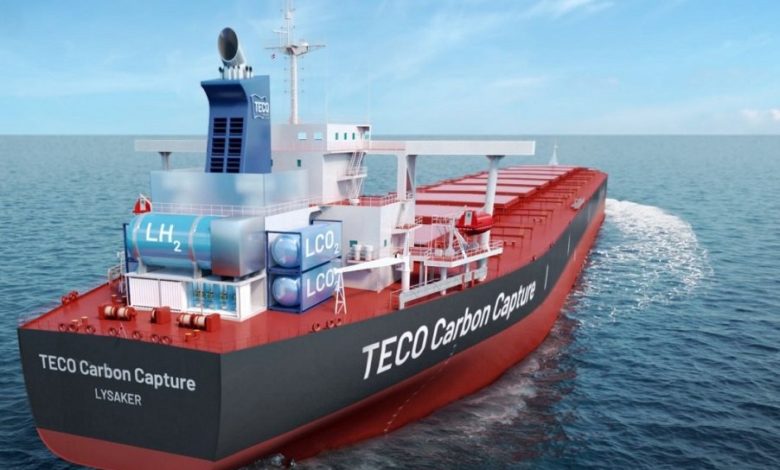TECO 2030 bets on maritime carbon capture and storage

Norwegian engineering firm TECO 2030 and its Austrian partner AVL are moving to the next phase of onboard carbon capture and storage (CSS) development to verify and optimise the technology for maritime applications.
The Oslo-based company said Wednesday it carried out a feasibility study, in collaboration with AVL, which has concluded that onboard CCS is technically and financially viable.
The CCS technology will be integrated as part of the TECO 2030 Future Funnel marine emission reduction system, which comes with open loop as well as closed loop and hybrid options.
TECO 2030 claims that this technology can reduce CO2 emissions by 30-40% and have a large impact on the ship’s Energy Efficiency Index (EEXI) and Carbon Intensity Index (CII).
In addition to CCS, the Future Funnel will allow ships to reduce sulphur oxides, nitrogen oxides, black carbon and particulate matter emissions.
“The carbon capture and storage is very attractive for shipowners who seek to future proof their vessels to meet decarbonisation plans and strategies. According to Clarksons Research Portal, the CCS technology will be beneficial to over 80,000 vessels globally, and the CO2 emission reduction possibilities onboard are endless,” said Tore Enger, CEO of TECO 2030.
The two companies are also working together on marine fuel cells development, with TECO 2030 planing a large-scale production facility in Narvik, Norway.
